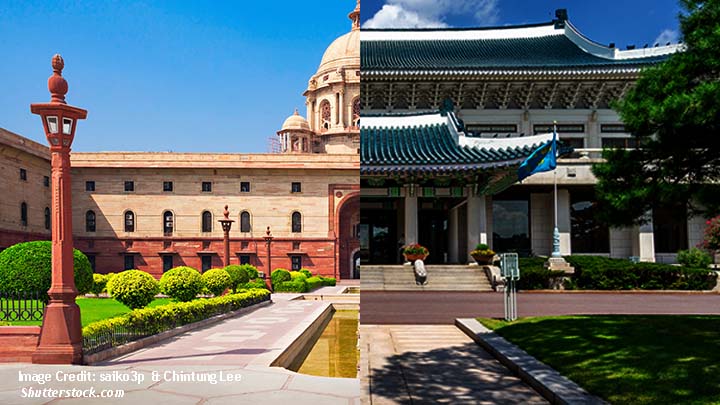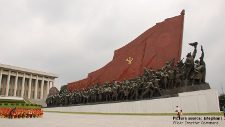Seoul’s Changing Indo-Pacific Manifesto and India: Policy Prescriptions for India-ROK Ties

Jagannath Panda
Abstract:
China’s stupendous rise and the subsequent rivalry with the US for global hegemony have forced countries to choose sides; caught between a rock and a hard place, middle powers like India and South Korea have sought to maintain partnerships with both countries in the geo-economic space while precariously balancing the two in the geo-political domain.
In this policy paper HCSS Senior Fellow Jagannath Panda contends that South Korea’s flagship New Southern Policy (NSP), under Moon Jae-in, is unwilling to embrace the Indo-Pacific construct. This has brought to the forefront challenges that Seoul must overcome to raise its global profile.
Panda explores the potential impact of the Yoon administration’s initiative of aligning with the US Indo-Pacific strategy on the India-South Korea ties and what this means for the quad. It also reviews the new global possibilities emerging for South Korea following its support of the US-initiated Indo-Pacific Economic Framework for Prosperity (IPEF), including collaboration with Japan. Against this geo-political reality, this paper provides a summary of policy prescriptions to advance India-South Korea ties.
Related Publications
-
ISDP Annual Report 2023
ISDP’s Annual Report for the year 2023. We look back on 2023, a year in which tensions and conflicts captured the strategic space in ISDP’s focus areas, making headlines around […]
-
South Korea’s Indo-Pacific Strategy, Atmanirbhar Bharat, and the IPEF: Convergence and Commonality
For some time now, the existing multilateral networks such as those of the United Nations (UN) system have been largely ineffective in providing good global governance and helping create resilience, […]
-
Washington Declaration: Beyond Korea, What it Means for India?
In April 2023, South Korea and the United States released the Washington Declaration to reiterate and upgrade their treaty alliance. In outlining a joint nuclear deterrence strategy, the Declaration reaffirmed […]
-
Navigating the Indo-Pacific: How Australia and the EU Can Partner for Peace, Stability, and Prosperity
To navigate the choppy waters of the Indo-Pacific, the EU and Australia must be on the same wavelength regarding shared interests in rules, values, and an open and liberal economic […]
-
Anticipating North Korea’s Next Nuclear Test
This issue brief provides a comprehensive analysis of the anticipated technical and strategic objectives behind North Korea’s potential seventh nuclear test, along with an examination of the probable timing for […]




